On Monday The United Nations Intergovernmental Panel on Climate Change (IPCC) finalized the first instalment of its Sixth Assessment Report concluding that “there’s no going back”.
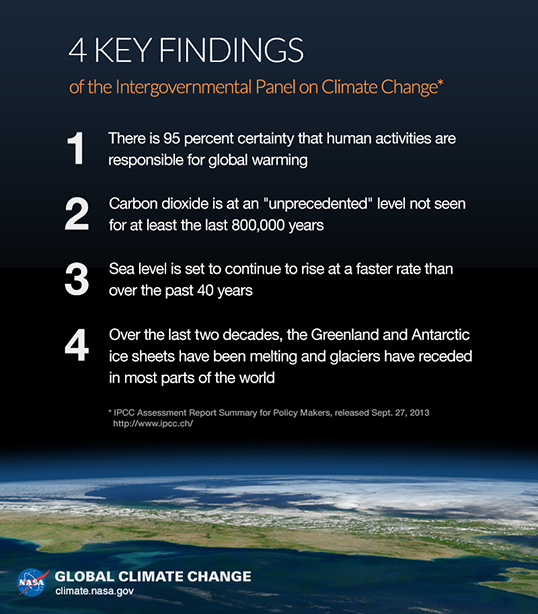
Photo Credit: NASA Climate Change
For the past 14 days, more than 200 internationally renowned climate scientists have been partaking in a virtual conference to finalize the physical science basis of climate change, the first instalment of the IPCC’s Sixth Assessment Report.
The report opened by stating, “it is unequivocal that human influence has warmed the atmosphere, ocean and land”. This is a much more definitive statement than the IPCC’s previous report in 2013 that labelled human activity as an “extremely likely” culprit.
It will be hard to dispute human-induced climate change now that an international team of scientists has confirmed human influence is causing “widespread and rapid changes” to every region across the globe. Many are now facing these effects like the floods in China and Europe, the wildfire in California and Greece, and the record heat in Canada and Siberia.
Ko Barrett, vice-chair of the IPCC and senior adviser for climate at the National Oceanic and Atmospheric Administration, said, “there’s no going back from some changes in the climate system”.
These reports are made to aid governments in making climate policies. This report will play a crucial role in the 26th Conference of the Parties (COP26). More ambitious goals will need to be established at the COP26 summit in order to fight the climate crisis.
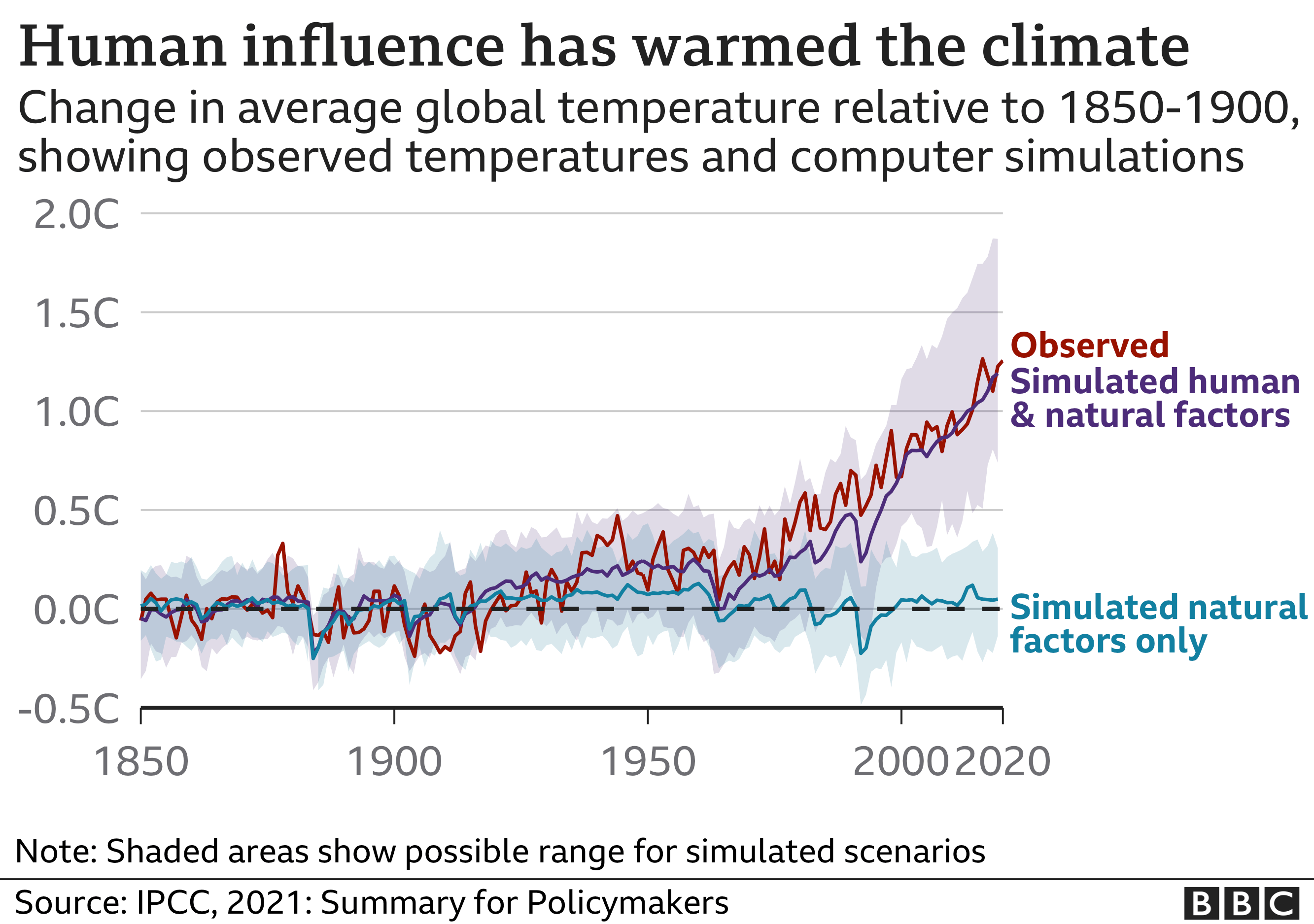
Photo Credit: BBC
The report highlights that the Earth is warmer than it’s been in 125,000 years. Since the industrial revolution, the global average temperature has warmed 1.1°C due to greenhouse gas emissions.
At the 21st Conference of the Parties, politicians seemed to be taking climate action more seriously with the inception of the Paris Agreement. However, many countries have not upheld the goals of the agreement, including cutting greenhouse gas emissions to halt global warming at 1.5°C. The report warns that even if greenhouse gas emissions significantly decline this goal may not be met.
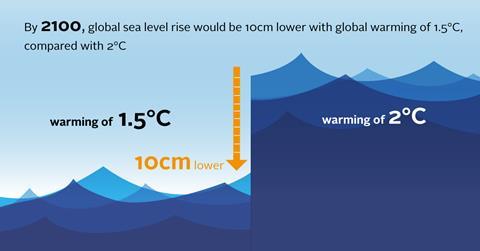
Photo Credit: Principals for Responsible Investment
The fastest-warming region is the Arctic, and as it warms it creates further global warming. By at least 2050 the white reflective ice atop the Arctic Ocean could disappear leaving the dark exposed water below to absorb heat from the sun. The melted ice will also contribute to rising sea levels creating catastrophic flooding.
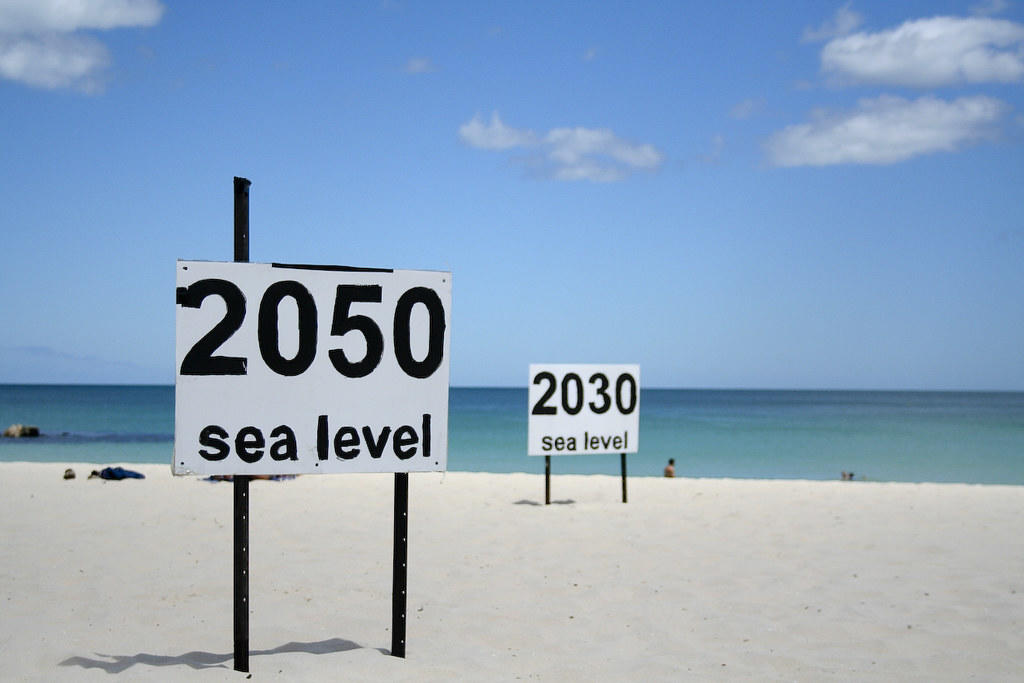
Photo Credit: NRDC
Sea levels will continue to rise whether or not the global average temperature caps at 1.1°C. The Antarctic and Greenland ice sheets are melting which is and will continue to disrupt the global climate system. From 1992 to 2017 their melting contributed to a 17 mm rise in sea levels. Rising sea levels come with an increased risk of extreme flood events, extreme rain and other changes to climate patterns.
The scientists did not beat around the bush with this report, highlighting just how dire the situation has become and how catastrophic it could get if drastic measures are not taken. Although time is running out there are ways to mitigate the damage.
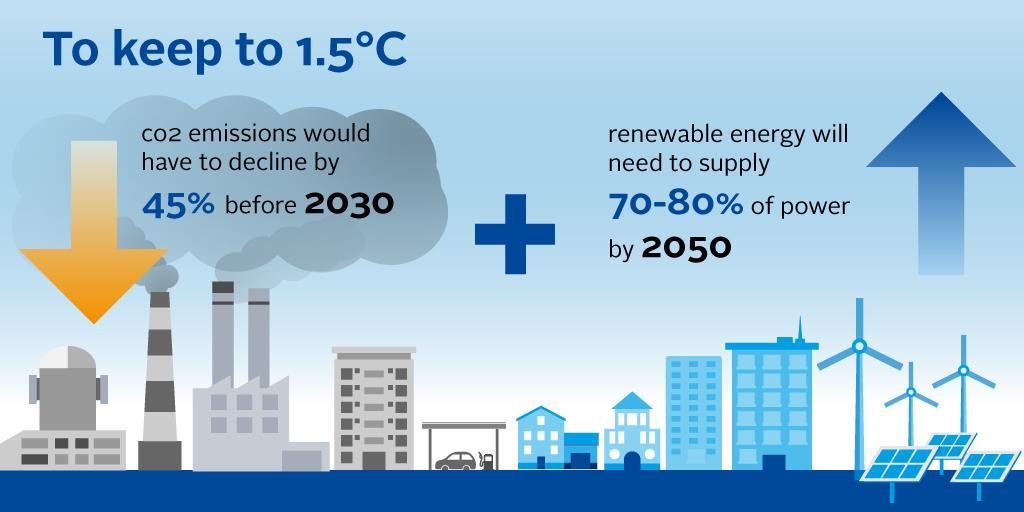
Photo Credit: The Renewable Energy Hub
40 billion tons of CO2 are added to the atmosphere yearly. Sustainable energy sources are the way of the future. We have the technology to implement them, they can be more cost-effective and they could create jobs globally. However, the strong-arm the oil industry has on politicians is creating a major roadblock.
Maisa Rojas Corradi, an IPCC author and director of the Center for Climate and Resilience Research at the University of Chile said, “Is it still possible to limit global warming to 1.5 degrees? The answer is yes, but unless there are immediate, rapid and large-scale reductions of all greenhouse gases, limiting global warming to 1.5 degrees will be beyond reach”.
The report’s scientific data shows that aggressive and immediate action needs to be taken. As highlighted, time is running out to mitigate the damage of climate change, the COP26 summit must be a milestone in the global fight against climate action.


